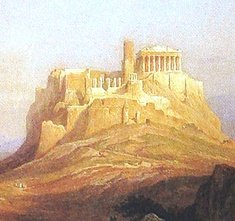Featured Quizzes
User Quizzes
Create Quiz
Data and Charts
Badges and Games
About JetPunk
JetPunk Shop
Dark Mode

Ancient Greek Trivia
Can you guess these facts about the history of Ancient Greece?
Rate:
Featured Quiz
Last updated: September 20, 2020
You have not attempted this quiz yet.
More quiz info >>
| First submitted | July 26, 2013 |
| Times taken | 58,812 |
| Average score | 70.0% |
| Rating | 4.45 |
4:00
Enter answer here
0
/ 20 guessed
Time Used
00:00
Best Time
00:00
The quiz is paused. You have remaining.
Scoring
You scored / = %
This beats or equals
% of test takers
also scored 100%
The average score is
Your high score is
Your fastest time is
Keep scrolling down for answers and more stats ...
|
|
New and Popular
Save Your Progress
Copyright H Brothers Inc, 2008–2024
Contact Us | Go To Top | View Mobile Site

I got it eventually, but by sheer luck
Only the smart kids took geometry, not me.
The (completely silly) argument people like to have is about which modern nation-state gets the rights to use the name of the ancient kingdom and region.
I kinda feel cheated.
Made me smile!
BTW if you didn't smile, watch this!